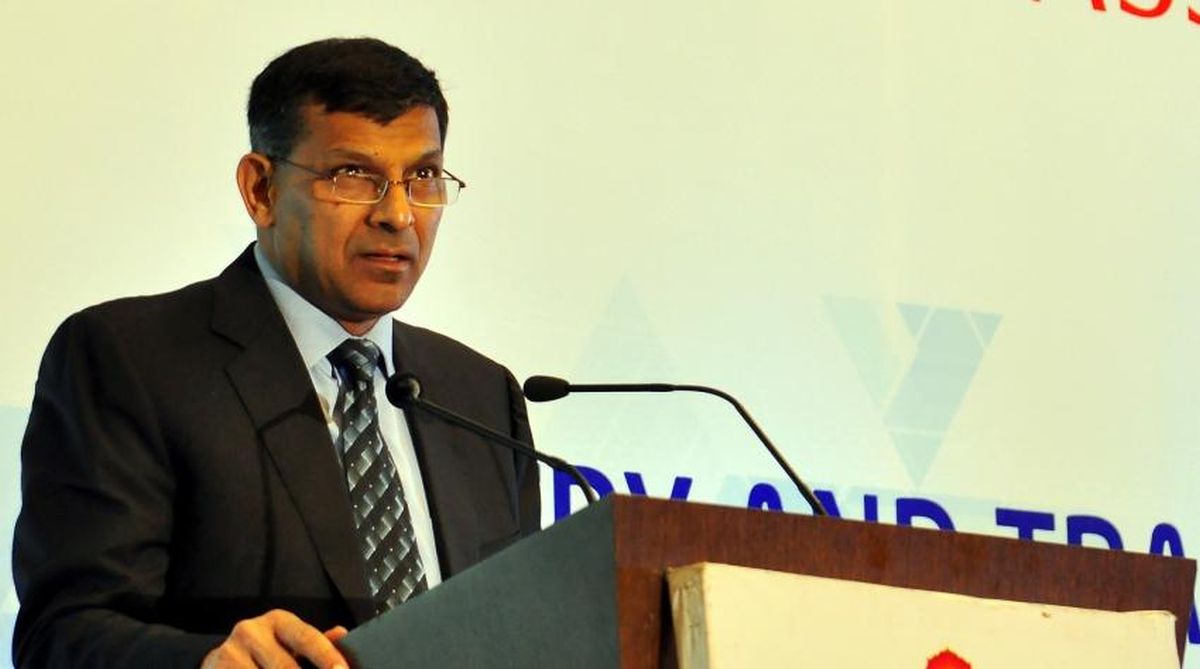ICMAI organises symposium focusing on PM Modi’s ‘Developed India 2047’ vision
The event focused on Prime Minister Narendra Modi's "Developed India 2047" vision.
India’s economic growth slowed to a six-year low of 4.5 percent in the July-September quarter. With inflation rising, fears of stagflation, a fall in aggregate demand accompanied by rising inflation, have resurfaced.

Former Governor of RBI Raghuram Rajan. (File Photo: IANS)
As India continues to face the economic slowdown, former Reserve Bank of India (RBI) governor Raghuram Rajan has said the country is in the midst of a “growth recession” that is being run through extreme centralisation of power in the Prime Minister’s Office.
In an article in India Today magazine, he called for reforms to liberalise capital, land and labour markets, and spur investment as well as growth. Rajan asked India to join free-trade agreements in order to boost competition and improve domestic efficiency.
Advertisement
“To understand what has gone wrong, we need to start first with the centralised nature of the current government. Not just decision-making but also ideas and plans emanate from a small set of personalities around the Prime Minister and in the Prime Minister’s Office (PMO),” he wrote.
Advertisement
“That works well for the party’s political and social agenda, which is well laid out, and where all these individuals have domain expertise. It works less well for economic reforms, where there is less of a coherent articulated agenda at the top, and less domain knowledge of how the economy works at the national rather than state level,” Rajan wrote.
Previous governments may have been untidy coalitions but they consistently took path of further economic liberalisation, Rajan said, adding, “Extreme centralisation, coupled with the absence of empowered ministers and the lack of a coherent guiding vision, ensures that reform efforts pick up steam only when the PMO focuses on them, and lose impetus when its attention switches to other pressing issues”.
“The Modi government came to power emphasising ‘minimum government, maximum governance’. This slogan is often misunderstood. What was meant was that government would do things more efficiently, not that people and the private sector would be freed to do more. While the government continues the creditable drive to automation – direct benefit transfer to recipients is an important achievement – the role of the government in many spheres has expanded, not shrunk,” he said.
Rajan said the starting point to address the economic slowdown will be for the Modi government to acknowledge the problem.
“The starting point has to be to recognise the magnitude of the problem, to not brand every internal or external critic as politically-motivated, and to stop believing that the problem is temporary and that suppressing bad news and inconvenient surveys will make it go away,” he said. “India is in the midst of a growth recession, with significant distress in rural areas.”
“Domestic businesses have not been investing either, and the stagnation in investment is the strongest sign that something is deeply wrong,” he said.
India’s economic growth slowed to a six-year low of 4.5 percent in the July-September quarter. With inflation rising, fears of stagflation, a fall in aggregate demand accompanied by rising inflation, have resurfaced.
Government’s repeated allusions to a $5-trillion-economy by 2024, which would necessitate steady real growth of at least 8-9 percent per year starting now, seem increasingly unrealistic, Rajan added.
“Furthermore, even if some of the problems are legacies, the government, after five-and-a-half years in power, needs to resolve them. A massive new reform thrust is needed, accompanied by a change in how the administration governs,” he said.
Advertisement